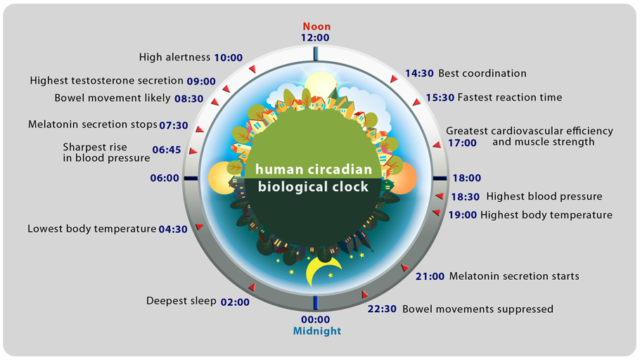
By Tim Stephens, HealthCanal, June 14, 2015 – A protein associated with many kinds of cancer cells was found to suppress the circadian clock, with implications for cancer biology and the workings of the clock itself
A new study led by UC Santa Cruz researchers has found that a protein associated with cancer cells is a powerful suppressor of the biological clock that drives the daily (“circadian”) rhythms of cells throughout the body. The discovery, published in the June 4 issue of Molecular Cell (and online now), adds to a growing body of evidence suggesting a link between cancer and disruption of circadian rhythms, while offering new insights into the molecular mechanisms of the biological clock.
The ticking of the biological clock drives fluctuations in gene activity and protein levels that give rise to daily cycles in virtually every aspect of physiology in humans and other animals. A master clock in the brain, tuned to the daily cycle of light and dark, sends out signals that synchronize the molecular clocks ticking away in almost every cell and tissue of the body. Disruption of the clock has been associated with a variety of health problems, including diabetes, heart disease, and cancer.
According to Carrie Partch, a professor of chemistry and biochemistry at UC Santa Cruz and corresponding author of the paper, the connection between clock disruption and cancer is still unclear. “The clock is not always disrupted in cancer cells, but studies have shown that disrupting circadian rhythms in mice causes tumors to grow faster, and one of the things the clock does is set restrictions on when cells can divide,” she said.
Cancer markers
The new study focused on a protein called PASD1 that Partch’s collaborators at the University of Oxford had found was expressed in a broad range of cancer cells, including melanoma, lung cancer, and breast cancer. It belongs to a group of proteins known as “cancer/testis antigens,” which are normally expressed in the germ line cells that give rise to sperm and eggs, but are also found in some cancer cells. Cancer researchers have been interested in these proteins as markers for cancer and as potential targets for therapeutic cancer vaccines.
“For very few of these do we understand the roles they might play in driving cancer,” Partch said. “Understanding how PASD1 is regulating the circadian clock could open the door to developing new therapies. We could potentially find ways to disrupt it in those cancers in which it is expressed.”
Beyond its role in cancer, Partch is also interested in understanding the normal role of PASD1 and why it is silencing the clock in the human germ line. The germ line is the only tissue in the body that researchers have found does not have circadian cycles.
READ MORE











